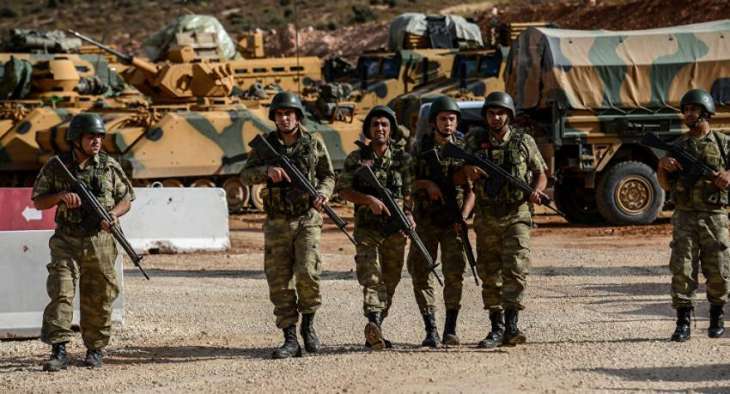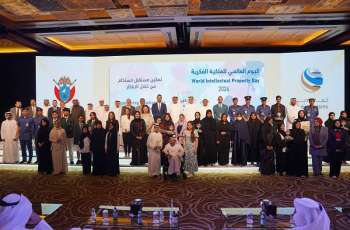Joint Russian and Turkish sting operations against terror groups in Syria's Idlib could be one of the possible solutions to the problem in this region, while attacks on "moderate opposition" can lead to serious difficulties, Turkish military analyst Resul Serdar Atash told Sputnik.
ANKARA (Pakistan Point News / Sputnik - 14th September, 2018) Joint Russian and Turkish sting operations against terror groups in Syria's Idlib could be one of the possible solutions to the problem in this region, while attacks on "moderate opposition" can lead to serious difficulties, Turkish military analyst Resul Serdar Atash told Sputnik.
The Syrian northwestern province of Idlib remains a stronghold of terrorist insurgency in the country. Under the ceasefire agreement between the Syrian government troops and armed opposition, military activities in the Idlib de-escalation zone are prohibited. However, the militant groups continue their attacks against the Syrian government forces.
The situation in the crisis-torn province was on the agenda of Tehran talks between Russian President Vladimir Putin, Turkish President Recep Tayyip Erdogan and Iranian leader Hassan Rouhani on September 7.
The summit has resulted in the adoption of the Tehran Declaration, but the leaders argued whether it would be necessary to incorporate the provision on truce in Idlib in the document. As a result, the three presidents opted against it and just called on the terrorists in Idlib to arrange a truce, stressing that solving the problem with terrorists in the area is the key to establishing peace in the country.
"Joint sting operations of Russia and Turkey without harming the civilian population can be one possible option to resolve the Idlib problem. A possible Damascus' operation will not be well received in Idlib, as this is a threat to 4 million residents of the province," Atash said.
According to the expert, there is already a separation between the "moderate opposition" and the terrorist groups in Idlib. Turkey officially designated Hayat Tahrir al-Sham (HTS, formerly Jabhat Fatah al Sham terror organization, banned in Russia) as the terrorist group.
"Turkey considers the remaining groups in Idlib to be a legitimate opposition. But the position of Damascus and Moscow, their understanding of which groups are moderate opposition and which are terrorist organization, will be crucial here. If Russia and [Syrian President Bashar] Assad are really fighting terrorist groups, then their only target should be HTS. Attacks on other groups can lead to serious complications," Atash noted.
The military analyst went to say that the decision on a large-scale operation in Idlib depends to a great extent on Russia's position.
"Turkey offers a truce to reach a peaceful political solution in Idlib. If a truce can be arranged, then it might be the case for disarmament of terrorists. Thus, massive losses of life among the civilian population can be avoided. But if Moscow and Damascus begin a large-scale operation in Idlib under the pretext of the fight against terrorism, then Astana agreements will largely lose their meaning," the expert said.
In this case Turkey's and Russia's joint achievements in the settlement of the Syrian crisis could be seriously undermined, according to Atash.
The military analyst called the task of terminating the HTS's activities a priority, saying that "in order to give it a chance by announcing the truce, the parties have to negotiate. But it would be wrong to address Idlib in isolation from the general problem in Syria. This problem cannot be solved completely unless a fair and democratic system is established in the country, a new constitution is adopted, transparent participation of all sectors of society in democratic processes is achieved."
Atash believes that if terrorists laid down their arms and stopped armed resistance, those who are not involved in serious crimes could remain in Syria.
"This problem can be solved with the help of amnesty. Armed groups that do not belong to terrorist elements can be integrated into the establishment of a new democratic system," the expert said.
The truce in Idlib, proposed by Turkey at the trilateral summit in Tehran, was an attempt to build the basis for a compromise, according to the expert.
"But unfortunately, Russia and Iran rejected this. With the declared truce, a mechanism can be established there that will allow terrorist organizations to lay down their arms and give Idlib residents a guarantee that they are not threatened with mass deaths. This truce will give an opportunity to put pressure on HTS fighters and give them time to put down their weapons," Atash said.
The analyst went on to express doubts about the possibility of establishing direct contact between Ankara and Damascus.
"Assad, in terms of Turkish official position, is not a legitimate person, so he is responsible for the mass deaths among Syrian population. In addition to this moral principle, I do not think that pragmatically Ankara will need something similar, because currently there is a close dialogue between Ankara, Moscow and Tehran, and that is enough," the analyst said.
As for the media reports on Ankara strengthening its 12 observation posts to control the de-escalation zone in Idlib, Atash said that their initial creation was carried out under the agreements reached between Ankara, Tehran and Moscow.
Turkey has recently decided to strengthen the security measures at the posts due to the growing threat from HTS, according to the expert.




